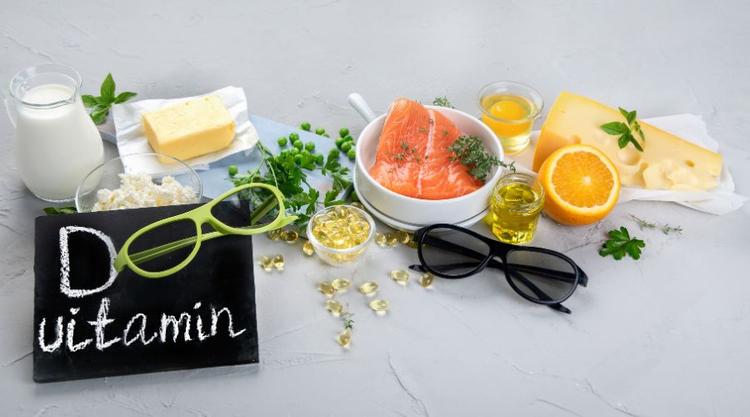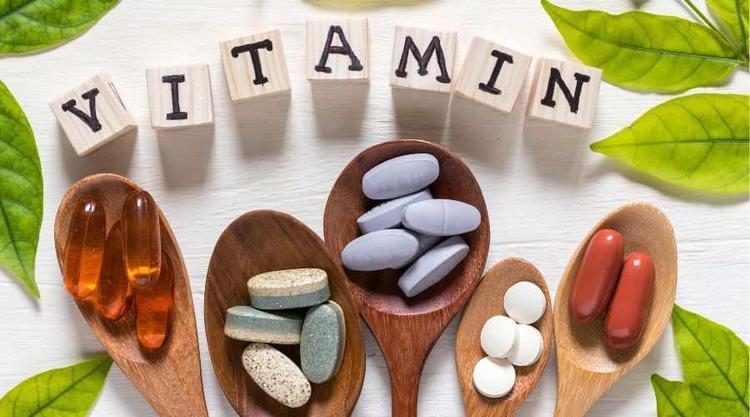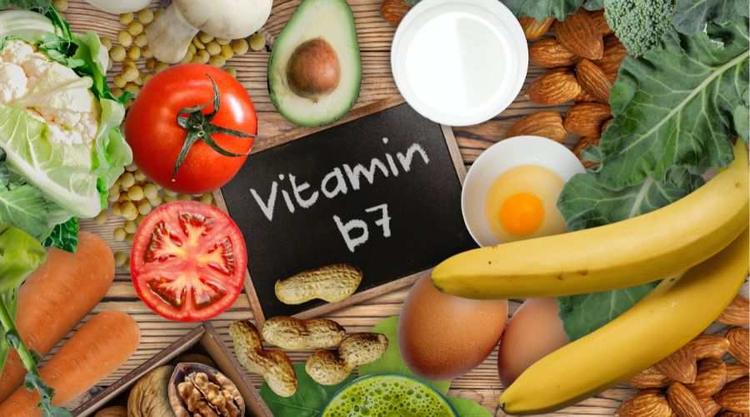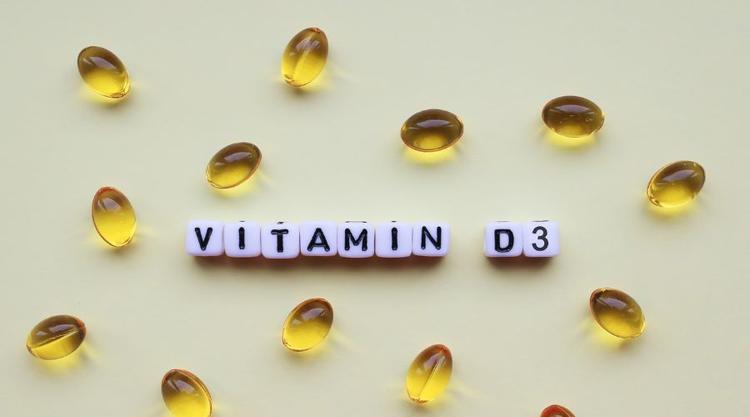Vitamin K Rich Foods: Empowering Your Wellness Goals

Medically Reviewed By
Dr Divya Rohra
Written By Kirti Saxena
on Mar 19, 2024
Last Edit Made By Kirti Saxena
on Mar 19, 2024

Did you know why Vitamin K is important? Well, the role of this nutrient needs to get more credit, but it plays a critical role in blood clotting, bone health, and even reducing the risk of chronic diseases. Vitamin K deficiency may cause symptoms like easy bruising, bleeding from gums or nose, blood in stool, and more. So, if you are noticing these symptoms, then you must not delay discussing them with your doctor. Your doctor may advise the vitamin K test to determine if you are vitamin K deficient.
But where do you get this vital vitamin? There are multiple ways to improve your vitamin K levels. Taking a balanced diet rich in vitamin K food ensures proper blood clotting and supports bone health. Also, adequate vitamin K intake lowers the risk of osteoporosis and heart disease.
In this blog, let's explore What food is highest in Vitamin K and what you should add to your diet to keep your body functioning at its best.
Daily Requirement of Vitamin K
The daily requirements of vitamin K may vary based on age and gender. Here is the recommended daily allowance for vitamin K-
|
Age |
Daily requirement |
|
Infants (0-6 months) |
2 mcg |
|
Babies (7-12 months) |
2.5 mcg |
|
Children (1-3 years) |
30 mcg |
|
Children (4-8 years) |
55 mcg |
|
Children (9-13 years) |
60 mcg |
|
Children (13-18 years) |
75 mcg |
|
Men above 19 years |
120 mcg |
|
Women above 19 years |
90 mcg |
|
Pregnant and breastfeeding women |
90 mcg |
Types of Vitamin K
There are 3 types of Vitamin K-
- Vitamin K1- Also called phylloquinone, it is found in plant foods like kale, spinach, and collard green. To a limited extent, the body can convert some vitamin K1 into vitamin nK2.
- Vitamin K2- Also known as Menaquinone and Vitamin K2 foods found in fermented foods like fermented soybeans and cheese, eggs, and liver also contain small amounts of vitamin K2.
- Vitamin K3- is also known as menaphthone or menadione.
Warning Signs of Vitamin K Deficiency
People with Vitamin K deficiency may notice these symptoms-
- Easy Bruising and Excessive Bleeding
- Blood in the stool or urine
- Bleeding
- Hemorrhaging
- Osteopenia or osteoporosis
Also read- What Are The Symptoms Of Vitamin D Deficiency?
10 Best Foods to Increase Your Vitamin K Naturally
You can easily boost your vitamin K intake naturally through your diet. Here is the list of best Vitamin K foods to make you Vitamin K efficient-
- Kale- It is the best source of plant-based vitamin K, having 443% of the Daily Value. You can sauté it, blend it into a smoothie, or enjoy it raw in a salad.
- Mustard Greens: Another leafy green powerhouse, mustard greens provide a spicy kick with 346% DV of vitamin K.
- Swiss Chard: Don't underestimate this vibrant green! Swiss chard packs a punch with 332% DV of vitamin K per serving. Enjoy it roasted with garlic and olive oil.
- Collard Greens—Collards are rich in fibre, calcium, iron, and magnesium. Their anti-inflammatory properties help reduce cholesterol levels. Half a cup of collard greens contains 336 mcg.
- Spinach- Spinach provides 121% DV of vitamin K per serving. You can consume this leafy vegetable raw, cooked, or blended into sauces.
- Natto- This fermented soybean dish provides 261% DV per serving. It is rich in probiotics, fibers, and proteins that help to keep your stomach happy and healthy.
- Brussels Sprouts- A 1 cup cooked brussels sprouts contain 91% DV of vitamin K.
- Broccoli- It contains lots of vitamins and minerals, including 92% DV of vitamin K per serving. You can roast it or steam it, or you can enjoy it raw with your favorite dip.
- Beef Liver- If you are an organ meat lover, beef liver offers a rich source of vitamin K with 60% DV per serving. Cook the food thoroughly before consumption.
- Eggs- Egg yolks contain vitamin K2, with one large egg providing around 5% of the DV. You can enjoy eggs for breakfast, lunch, or dinner.
Adding these vitamin K-rich options to your diet is a simple way to support your overall health and well-being. You can improve your vitamin K levels by enjoying the delicious variety of foods and a balanced diet.
7 Vitamin K fruits you must add to your diet
Here is the list of the best vitamin K fruits people must know to improve their vitamin K levels.
- Pomegranate
- Blackberries
- Blueberries
- Figs
- Tomatoes
- Grapes
- Red currants
Vitamin K Nuts and legumes
- Soybeans
- Sprouted mung beans
- Cashews
- Hazelnuts
- Pine nuts
- Kidney beans
- Pecans
- Walnuts
Best dairy foods and eggs high in vitamin K
- Soft cheese
- Blue cheese
- Butter
- Cream Whole milk
- Cheddar
6 Vitamin K Meat products
- Pork liver
- Duck Beast
- Ground beef
- Bacon
- Chicken Liver
- Beef kidneys
Also Read- Vitamin B12 Rich Foods Vegetarian: Best Health Tips
How do you meet your daily Vitamin K requirements?
Luckily, adding a variety of vitamin K-rich foods into your diet is a delicious and natural way to meet your needs. Leafy greens vegetables like kale, spinach, collard greens, Swiss chard, and mustard greens are rich sources of Vitamin K and will help you meet your daily requirements. Include a diverse range of vitamin K-rich foods throughout the week to ensure you get a good mix of both vitamin K1 and K2. This essential Vitamin supports healthy blood clotting and strong bones and also supports better heart health.
The list above is enough if you are looking for the best Vitamin K fruits and vegetables. Moreover, always consult your healthcare provider before starting any vitamin K supplements. They can assess your condition and recommend the right dosage and other treatment options.
A balanced diet is key! If you have concerns, consult your doctor and take a Vitamin K test to determine your levels.
Also Read- Role of Vitamins in the Body Functions
Which foods have high vitamin K?
- kale
- Mustard Green
- Cashews
- Collard Green
- Chicken
- Eggs
- Swiss Chard
- Avocados
What are the risks of Vitamin K Deficiency?
- Bleeding
- Fatigue
- Muscle Damage
- Poor bone development
- Osteoporosis
- Risk of heart disease



